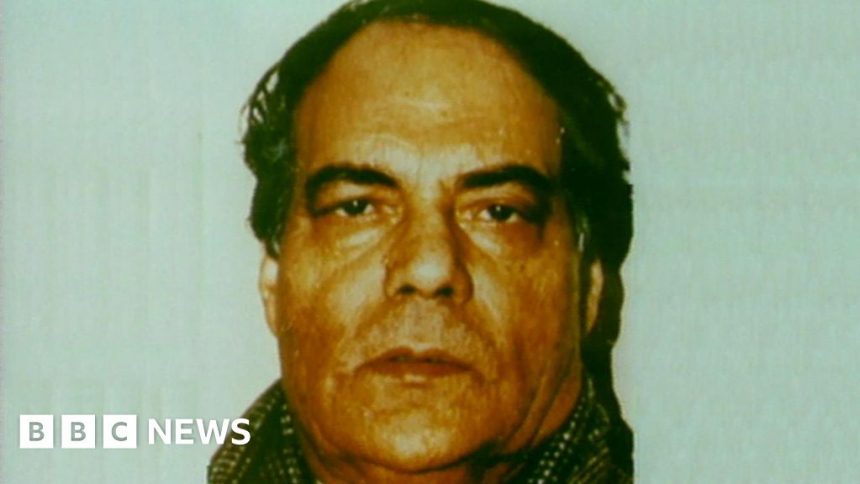Creosote for toothache – The fake GP who treated thousands over 30 years
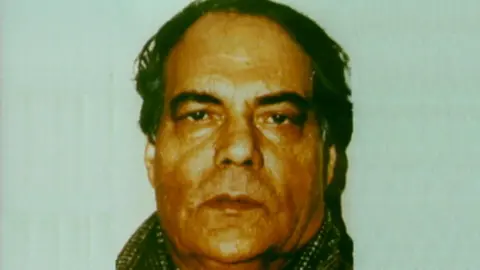 West Yorkshire Police
West Yorkshire PoliceFor 30 years Muhammed Saeed was a well-respected GP with one of the largest patient lists in Bradford. In truth he was a fake.
Perhaps the alarm bells should have started ringing when he began prescribing shampoo to treat a cold, creosote for toothache or suggested patients swallow their suppositories.
But it was ultimately a family feud that ended his three decades of deception and led to him being jailed for five years.
As a new play examines the motivations behind his malpractice, the BBC looks back at his fall from grace.
The pharmacist next door to Muhammed Saeed’s surgery in Darfield Street, Bradford, knew something was wrong.
In fact he was so worried about the “bizarre” prescriptions he was being handed by patients he photocopied 250 of the most suspicious.
These copies would later go on to form part of the 819 separate exhibits put before a jury at in Leeds in 1992 during Saeed’s trial.
But to many of the fake doctor’s thousands of patients he was a reassuring presence and a prominent figure in the city’s South Asian community.
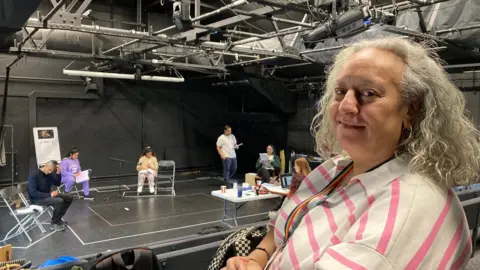
Dr Shabina Aslam is the artistic director of Theatre in the Mill and writer of Teaspoon of Shampoo, a new play based on Saeed’s life.
It was a conversation the academic had with her mother during one of the Coronavirus lockdowns that inspired her to look into the story.
She said: “My mum turned round to me one day and said ‘do you remember Dr Saeed?’.
“I said ‘yes’ and she goes ‘he died’ and I said that was sad. Then she goes ‘oh, you know he was a fake doctor?’
“I said ‘tell me everything’ but she said ‘no, it’s not good to talk ill of the dead’.”
As soon as restrictions were lifted Dr Aslam, 62, set about researching the topic, initially writing a short story before devising the play.
“The play is inspired by true events. It is a dramatisation. It shows him in different ways, including arrogant and falling apart,” she said.
“The audience is offered different views of one character. The play looks at the doctor as a fallible human being.”
During her research, she realised she had been treated by the fake doctor on two occasions.
“He was my doctor, growing up. I remember he came round once when my brother and I had measles,” she said.
“I remember a kindly man with a big thatch of hair and wearing a tweed jacket.
“Another time he removed some stitches in my wrist after I’d cut myself playing with my brother.
“He was well loved by the whole community and adored.”
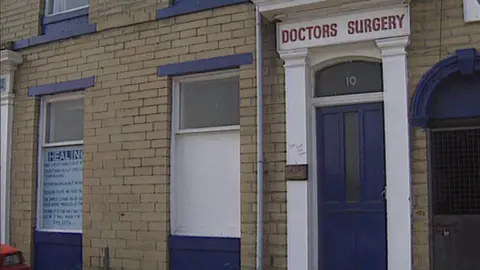
Dr Aslam’s image of Saeed as a trusted family GP contrasts sharply, however, with the profile built up by Det Ch Insp Brian Steele.
Saeed came to West Yorkshire Police’s attention in October 1990, nearly 30 years after he first set up his practice in Bradford, when a row with his only son over money led to a tip-off to the authorities.
Mr Steele was seconded from his role with the Bradford Drug Squad, along with a second detective, to look into the reports.
Over the following months, their probe stretched from Bradford to London then Scotland and, ultimately, Pakistan.
The detectives found Saeed had adopted the credentials of a real doctor of the same name who was still living in Pakistan.
On 25 January, 1991, the bogus GP was arrested at his modest, stone-fronted bungalow in South View Road, East Bierley.
During his trial, jurors heard how the ruse began in 1958 when Saeed set himself up as a fake doctor in his home-city of Nawabshah in Pakistan.
He used the real Dr Saeed’s medical degree from the University of Lahore to register as a GP, and later presented the same certificate to the General Medical Council (GMC) in England as proof he was qualified.
After arriving in Bradford he first set up a surgery in 1961 in Drewton Street before moving to Darfield Road.
The practice boomed and when the police finally caught up with him there was a patient list of almost 3,000 people – one of the biggest in the city.
He was eventually jailed, at the age of 64 and on the cusp of retirement, in 1992 after being convicted of deception.
During his trial the real Dr Saeed was flown over from Pakistan to give evidence, while jurors heard stories of circumcisions carried out in a room overlooked by neighbouring flats and a complete lack of proper facilities or sterilising equipment at the practice.
Although many pharmacists queried the prescriptions they never raised a formal complaint, often choosing to correct the doses themselves.
Speaking in 1992 one pharmacist said: “We didn’t telephone him every time he made a mistake, we simply got on and dispensed what we felt was a sensible dosage of a drug or discussed with a patient what it was that they were expecting and made appropriate adjustments.”
And, while there were a number of official complaints made about other GPs in Bradford at the time, the GMC never received a single one about Saeed.
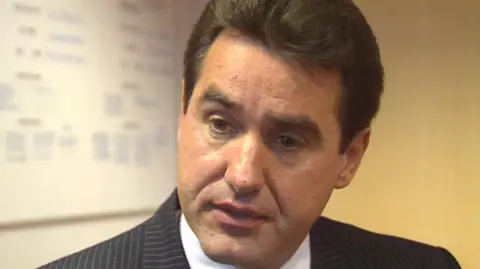
Passing sentence Judge Geoffery Baker QC described Saeed as a “charlatan”, who had carried out a deception that had been “cunningly contrived, skilfully executed, and brazenly maintained over three decades”.
However, he admitted Saeed was “obviously a man of intelligence, industry and ability” adding that had he employed those talents elsewhere he “could have achieved high status in some sphere, if not medicine”.
After his release Saeed lived in West Yorkshire until his death 2003 – still revered by some in the community, but also a convicted criminal.
Teaspoon of Shampoo is on at Theatre in the Mill, the University of Bradford, from Wednesday, 5 March to Saturday, 8 March.
Listen to highlights from West Yorkshire on BBC Sounds, catch up with the latest episode of Look North or tell us a story you think we should be covering here.



